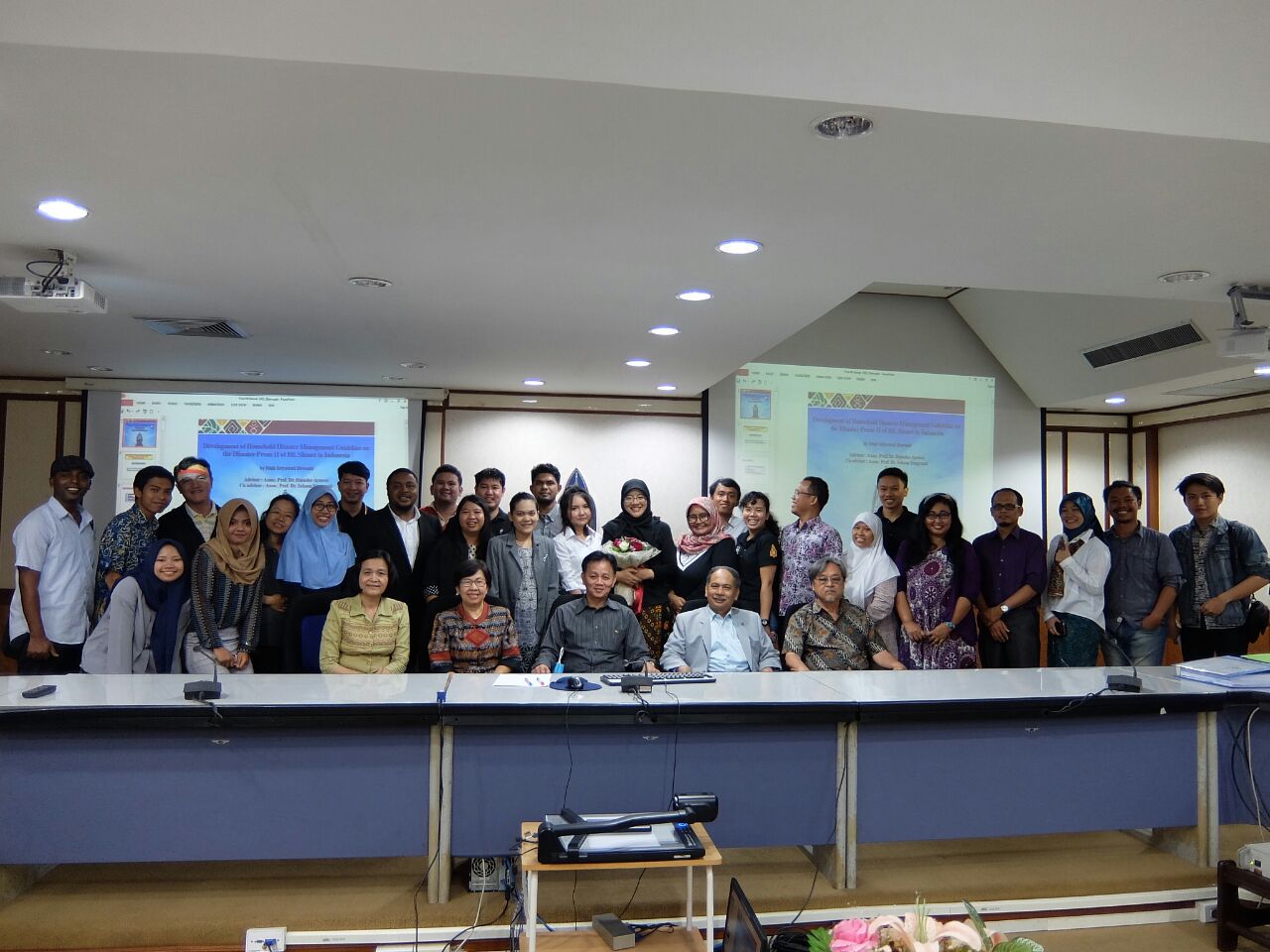Khon Kaen University conferred on IPIEF Lecturer the Honorary of Doctor of Philosophy

Yogyakarta—Earlier this week, Diah Setyawati Dewanti, M.Sc, has received an honorary doctorate from Development Science, Faculty of Humanities and Social Science, Khon Kaen University, Thailand in recognition of her study on formulating a comprehensive disaster management guideline for households living in the disaster area. The dissertation entitled “Development of Specific Disaster Management Guideline for Household who lived on the border of Disaster Prone II of Mount Slamet Indonesia” has been conducted for roughly three years in Mount Slamet. That place was selected as it is the second highest mount in Java Island and located in Central of Java, a highly populated region in Indonesia.
“Since Indonesia is situated in the Ring of Fire, the main area where a huge number of earthquakes and volcanic eruptions is likely to occur repeatedly and unfortunately, such a potential damage has yet to be fully addressed by Indonesian Government, it is obviously crucial to propose an integrated disaster management model as a guideline for the households living in the situation vulnerable to a catastrophic disaster,” the aforementioned statement was the motivation of Diah Setyawati Dewanti, M.Sc when asked about her background to thoroughly investigate what should be done to prevent the local people from the devastating damage that may certainly result from volcanic eruptions.
She explained, stressing: “By proposing the disaster management model based on Living Harmony with Disaster, I attempted to strongly emphasize the emergence of combining the strong beliefs and cultural heritage of the local people with the disaster management that has nationally been implemented to be an integrated concept, which is primarily aimed to strengthen the disaster management capacity of the most vulnerable households.” As a recommendation, she said “It is urgently needed for the government to improve an effective communication with local disaster authority, identifying the initial preparation for those most vulnerable to be more resilience and well prepared”.
It can be argued that such a concept is highly unlikely to change the cultural heritage of the people surroundings otherwise their beliefs can be the main factor to formulate a comprehensive disaster management. With regard to academic contribution, she found several new indicators to develop a concept for volcanic eruptions in Mount Slamet. Finally, she suggested that it is possible to do further research by employing the similar indicators and by using the mixed methodology that can adapt the local wisdom and beliefs in the disaster management. [Aw]